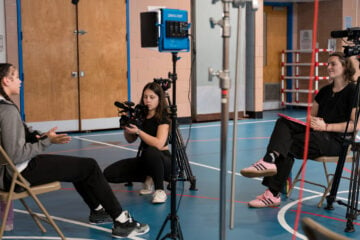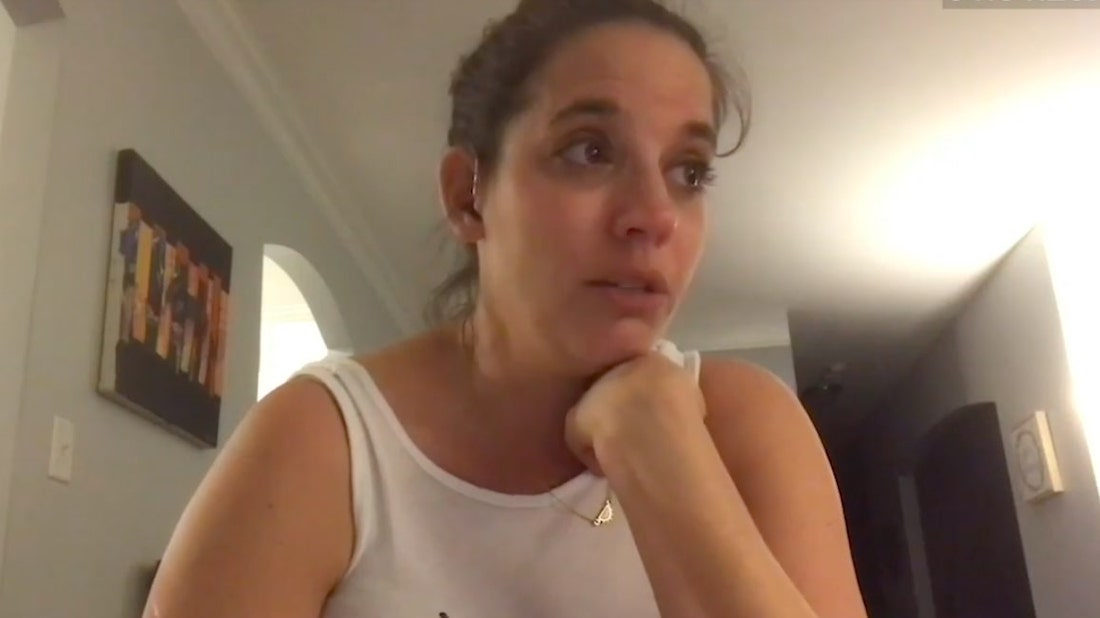Pubradio guide advises broad application of news ethics
A revised ethics guide for public radio asks journalists to “remain reportorial” instead of spouting opinions when they’re off the air, and it urges that they apply the same standards to call-in shows and websites as they do to newscasts.
CPB, which underwrote the project, will release the concise guide, Independence and Integrity II, on its website this week [PDF].
The authors are Alan G. Stavitsky, associate dean of the University of Oregon School of Journalism and Communication, who wrote the original pubradio ethics guide in 1995, and NPR ombudsman Jeffrey Dvorkin.
Though the pair consulted widely — discussing issues with pubradio and other journalists at the Poynter Institute last spring and then in workshops at three stations — Dvorkin says they didn’t end up with ambivalence about what they wrote.
One reason is that the authors avoided hairsplitting in favor of brevity. The guide runs just 26 pages, compared to 104 for the original Independence and Integrity and hundreds of pages for the BBC’s online guidelines.
Stavitsky and Dvorkin want to give busy journalists a quick reference that raises basic questions and gets them thinking.
“We were asked by some managers how long they should suspend a staffer who breaks rules,” Dvorkin said, but the authors declined to address such details, leaving newsroom managers to wrestle with them.
Since NPR published the original ethics guide in 1995, says Dvorkin, the pubradio world has changed. Listeners question journalists’ motives more frequently than when he became NPR’s ombudsman in 2000. “There’s a level of suspicion in general that might not have existed five years ago,” he said.
The standards consequently favor openness, suggesting that reporters state when a piece of information can’t be confirmed or when the source has a vested interest.
The guide will be useful not only to journalists and their bosses, but also to listeners who have questions about journalists’ accountability, NPR President Kevin Klose predicted in an intro to the guide.
Frontiers for journalistic ethics
Stavitsky and Dvorkin urge application of pubradio standards beyond news programs — advising call-in hosts to challenge callers’ questionable assertions and correct them if necessary, and music hosts to maintain news standards of fairness, accuracy and balance when they touch on current events.
Special issues arise when pubradio applies those standards to websites, according to the guide. For instance, a web editor should check out a site before linking to it and should make it clear that another organization is responsible for the linked site. But the guide adds a qualifier borrowed from the policy of WGBH, Boston: “Great latitude should be given personal or artistic expression [on linked sites] so long as the postings are not inaccurate or defamatory.”
It may be harder on the Web than on radio to make clear separations between clearly underwriting credits and editorial content, the guide observes. “In such matters, the guiding principle should be to avoid online presentation that may lead readers to infer any relationships between editorial and fundraising content, and clearly label any sponsorship or underwriting.”
Run your own gauntlet
On some of pubradio’s perennial issues, the guide offers questions that journalists can ask themselves:
- When a funder restricts grants to specific subject areas: “Is the issue a legitimate topic for coverage, something we wanted to cover anyway? Is the funder’s interest altruistic, as opposed to seeking financial or political benefit? Would it appear to listeners that the funds come with strings attached?”
- When a reporter might have a conflict of interest: “Might my activities and relationships compromise my ability to produce fair, accurate and balanced journalism? Might anyone reasonably think my activities and relationships could influence my ability to report?”
A sampling of one-liners excerpted from the guide:
- “Sources should be granted anonymity only in cases where our listeners’ interest is served by presenting the information this way, and the information is unavailable in any other way. . . .”
- “Errors occur in the best of journalism, but our credibility depends on how quickly we acknowledge and correct errors . . .”
- “When appearing on other media . . . don’t say anything you wouldn’t say on your own station or network. Remain reportorial!” (The same admonition applies to blogs on station websites, with the addition, “get an edit.”)
- On freebies: “The danger is that the gift-giver may hope to instill in the journalist a sense of obligation or simple good will–perhaps to be repaid later in the form of favorable coverage. Even if the journalist feels no such sense of obligation, it may appear to others that the reporter ‘could be bought.'”
In a concluding section, media ethicist Tom Bivins of the University of Oregon puts broadcasters on notice that their deliberations on ethical questions won’t necessarily be the last word on an issue.
“We may be called upon to justify our decisions to others,” Bivins writes. “We must be prepared to do so with the expectation that we will never satisfy everyone, but with the determination to try.”






